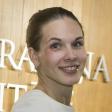As part of the seminar series “Current Theoretical and Methodological Affairs”, guest lecturers from various research institutions in Latvia and abroad will present their latest research findings, explaining their significance and the methods used.
Each seminar will consist of a lecture and a discussion. The seminars are open to a wide audience of interested parties, thus enhancing the quality of discussions and expanding networking opportunities.
The seminar series primarily focuses on research conducted in the fields of food and health, using these studies to discuss:
- Innovative methodological solutions in research;
- Disciplinary, thematic, and methodological diversity;
- Sustainability and society's resilience to crises;
- Potential future challenges.
Goal
The seminars will help participants navigate both national and international research issues, as well as thematic and methodological challenges. The seminars will assist young scientists in establishing and expanding their professional networks.
Frequency
The seminars take place on the second Thursday of each month.
23 Apr
15:00-16:30
9c Kuldīgas iela, room A-302
Studying international attraction through public opinion surveys
The guest lecture by Dr. Richard Turcsanyi, "Studying international attraction through public opinion surveys: Sinophone Borderlands project" and Latvian attitudes towards China, will introduce a large scale survey of 56 countries worldwide conducted as part of the Sinophone Borderlands project at Palacky University Olomouc.
Additional information and registration for Dr. Richard Turscsanyi's lecture
About the lecturer
 Dr. Richard Turcsanyi is an Assistant Professor at Palacky University Olomouc and Mendel University in Brno, and Program Director at Central European Institute of Asian Studies (CEIAS). He is an author of "Chinese Assertiveness in the South China Sea”, co-editor of “Contemporary China: A New Superpower?” and has published numerous articles on Chinese foreign policy and relations between China and (Central and Eastern) Europe. In recent years he led a large-scale public opinion survey in 56 countries worldwide regarding their attitudes towards China and international affairs (sinofon.cz/surveys).
Dr. Richard Turcsanyi is an Assistant Professor at Palacky University Olomouc and Mendel University in Brno, and Program Director at Central European Institute of Asian Studies (CEIAS). He is an author of "Chinese Assertiveness in the South China Sea”, co-editor of “Contemporary China: A New Superpower?” and has published numerous articles on Chinese foreign policy and relations between China and (Central and Eastern) Europe. In recent years he led a large-scale public opinion survey in 56 countries worldwide regarding their attitudes towards China and international affairs (sinofon.cz/surveys).
Moderator
Academic Staff, Faculty of Social Sciences
Lead researcher, scientific project manager, China Studies Centre
Director, Social Sciences doctoral programme, Department of Doctoral Studies
15 May
15:30-17:00
9c Kuldīgas iela, room A-305
Victimhood and identity - the post-heroic society
The talk will explore the transformation in memory-making within modern societies, conceptualised as the emergence of a post-heroic society, where victims, rather than heroes, become the focal point of commemoration. Traditionally, narratives of national identity were shaped through heroic figures who symbolised sacrifice, resilience, and valour. However, since the late 20th century, a paradigm shift has occurred in memory politics, moving from heroisation to victimisation. This shift is evident in commemorative practices, linguistic trends, and the strategies of political and social movements seeking public recognition.
- Read more
The talk will illustrate this transformation through several examples, including the growing prevalence of monuments dedicated to victims rather than heroic figures, the increasing use of the term "victim" in public discourse, and the ways in which contemporary political and social movements frame themselves through narratives of victimhood.
The consequences of this shift are multifaceted, raising questions about the nature of public recognition, the role of commemoration in shaping societal values, and the impact of victimhood narratives on political discourse. By critically analysing the transition from a heroic to a victim-centered mode of remembrance, the talk seeks to understand how this phenomenon affects democratic debate, social cohesion, and collective identity in contemporary Western societies.
About the lecturer
 Markus Meckl studied History and Philosophy in Berlin. In 1999, he completed his PhD with the title "Heroes and Martyrs: The Memory of the Warsaw Ghetto Uprising" at the Zentrum für Antisemitismusforschung at the Technical University of Berlin. Since 2000, he has been a Lecturer at the Latvian Academy of Culture. Since 2004, he has been a Professor at the University of Akureyri in Iceland. At the moment, he is coordinating an Erasmus project on "Cultural Memory in Europe: Commemoration, Memory Making, and Identity in the 21st Century."
Markus Meckl studied History and Philosophy in Berlin. In 1999, he completed his PhD with the title "Heroes and Martyrs: The Memory of the Warsaw Ghetto Uprising" at the Zentrum für Antisemitismusforschung at the Technical University of Berlin. Since 2000, he has been a Lecturer at the Latvian Academy of Culture. Since 2004, he has been a Professor at the University of Akureyri in Iceland. At the moment, he is coordinating an Erasmus project on "Cultural Memory in Europe: Commemoration, Memory Making, and Identity in the 21st Century."
Moderator
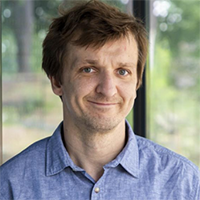 Prof. (Dr. of Social Sciences) Miķelis Grīviņš is a tenured professor at RSU. For the past ten years, he has been researching various aspects of food systems, focusing on the interaction between food circulation and dietary habits, as well as food policy and alternative food sources.
Prof. (Dr. of Social Sciences) Miķelis Grīviņš is a tenured professor at RSU. For the past ten years, he has been researching various aspects of food systems, focusing on the interaction between food circulation and dietary habits, as well as food policy and alternative food sources.
Process-Oriented Research, Planning, and Design of Urban Public Spaces
This presentation focuses on my research on user experience-based design and human-nature interaction, using case studies from Poland and Estonia. It highlights projects on the perception of nature in urban green and blue spaces, bottom-up urban planning, co-management of public spaces, and the design of temporary housing for resilient communities. The presentation will discuss the methods I have used, demonstrating how qualitative and quantitative approaches support landscape research and planning focused on processes rather than product.
About the lecturer
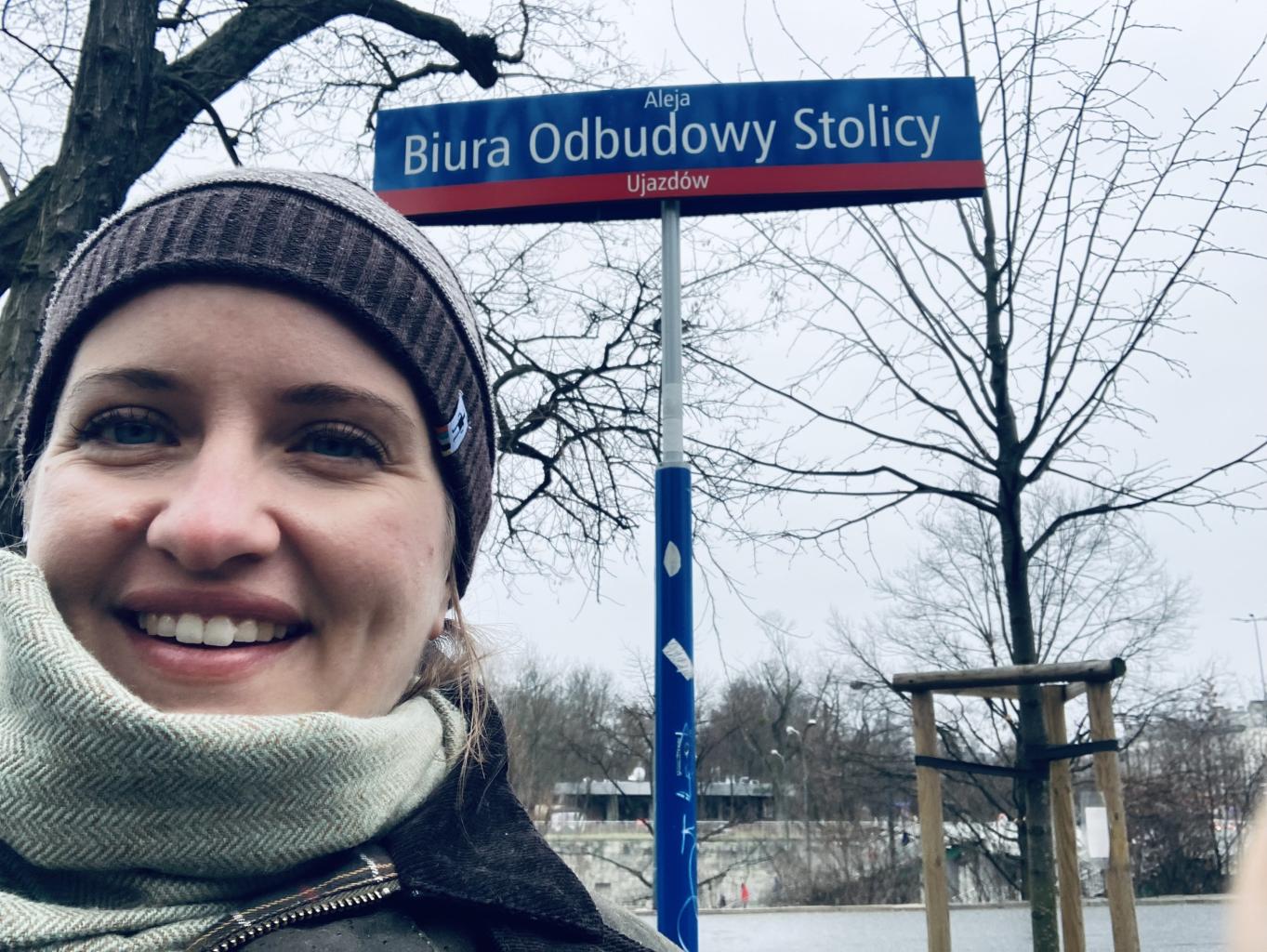 Anna Wilczyńska is a landscape architect and researcher specializing in sustainable urban landscapes, human-nature relationships, and cultural landscape theories. She holds an MSc and PhD from the Warsaw University of Life Sciences. Her work has focused on the perception and use of blue and green spaces in Warsaw, informal green and blue spaces, public participation, and bottom-up landscape design. She was also involved in the Horizon2020 BlueHealth project at the Estonian University of Life Sciences, where she lectured for eight years on landscape design topics. Currently, as a post-doc researcher funded by the KONE Foundation, she studies temporary housing and assembling home processes within the HoPE project and is a guest researcher at RSU in Latvia. With experience in landscape design in Paris and Warsaw, she is also passionate about graphic design, science communication, and nature illustration.
Anna Wilczyńska is a landscape architect and researcher specializing in sustainable urban landscapes, human-nature relationships, and cultural landscape theories. She holds an MSc and PhD from the Warsaw University of Life Sciences. Her work has focused on the perception and use of blue and green spaces in Warsaw, informal green and blue spaces, public participation, and bottom-up landscape design. She was also involved in the Horizon2020 BlueHealth project at the Estonian University of Life Sciences, where she lectured for eight years on landscape design topics. Currently, as a post-doc researcher funded by the KONE Foundation, she studies temporary housing and assembling home processes within the HoPE project and is a guest researcher at RSU in Latvia. With experience in landscape design in Paris and Warsaw, she is also passionate about graphic design, science communication, and nature illustration.
Moderator
 Prof. (Dr. of Social Sciences) Miķelis Grīviņš is a tenured professor at RSU. For the past ten years, he has been researching various aspects of food systems, focusing on the interaction between food circulation and dietary habits, as well as food policy and alternative food sources.
Prof. (Dr. of Social Sciences) Miķelis Grīviņš is a tenured professor at RSU. For the past ten years, he has been researching various aspects of food systems, focusing on the interaction between food circulation and dietary habits, as well as food policy and alternative food sources.
Past events in the series
- Contemporary Discourses of Motherhood and Mediatisation – Opportunities and Perspectives for Communication Research (13 March 2025)
The presentation ‘Contemporary Discourses of Motherhood and Mediatisation – Opportunities and Perspectives for Communication Research’ will briefly outline contemporary discourses on motherhood, mothering, and maternal identity, as well as their interrelations in mass media and social networking sites, in the narratives of new mothers and within public discourse in Latvia. It will also provide insights into the forms of motherhood mediatisation and how social networking sites, particularly Twitter (X) and Facebook, enhance the experience of motherhood.
Researcher Elza Lāma will also examine various quantitative and qualitative methods through which she has explored the topic of motherhood from a communication perspective in her doctoral research.
Lektore
 Elza Lāma is a researcher at Rīga Stradiņš University and she focuses on contemporary motherhood and mediatisation and the discourse of everyday life, as well as social media.
Elza Lāma is a researcher at Rīga Stradiņš University and she focuses on contemporary motherhood and mediatisation and the discourse of everyday life, as well as social media.
She specialises in qualitative methodology, such as deep interviews, but also enjoys employing netnography and a quantitative approach to tackle questions regarding social networking sites.Moderator
PhD Ieva PuzoSocial Sciences Research Centre9c Kuldīgas iela, Rīga, LV-1007- LETA Trend Reports (20 February 2025)
For the third year in a row, the national information agency LETA has been preparing a trend report for its clients, compiling data from media monitoring databases from the past year and outlining forecasts for the current year. While we cannot predict exactly what will happen, we can still forecast what society will pay attention to. Data combined with thoughtful discussion is a solid foundation for reducing the fog of uncertainty and assisting in decision-making in uncertain conditions.
Lecturer
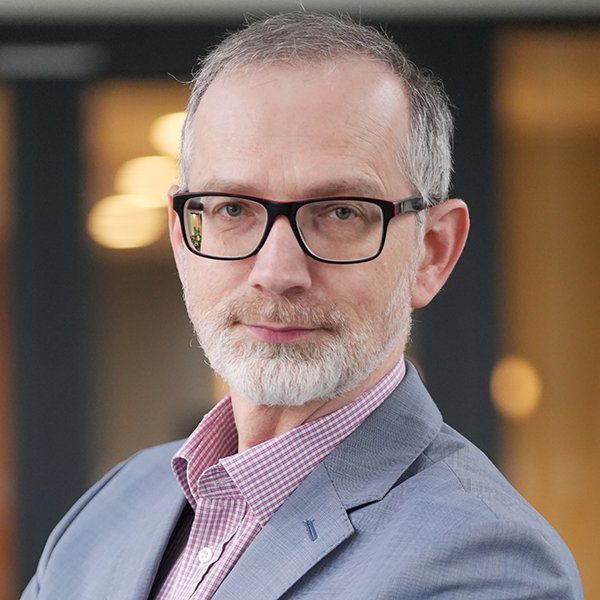 Ivars Svilāns is a communications professional with experience in the media, finance, retail, and education sectors. He was working in news when the Twin Towers collapsed, led Swedbank’s communications strategy through the global financial crisis, and helped restore Maxima’s reputation after the Zolitūde tragedy. He has also headed the communications departments at RTU and the Bank of Latvia.
Ivars Svilāns is a communications professional with experience in the media, finance, retail, and education sectors. He was working in news when the Twin Towers collapsed, led Swedbank’s communications strategy through the global financial crisis, and helped restore Maxima’s reputation after the Zolitūde tragedy. He has also headed the communications departments at RTU and the Bank of Latvia.Currently, Ivars is a data service development manager at the national information agency LETA, where he helps organizational leaders connect data with decision-making.
- bachelor's and master's degrees in business management from BA School of Business and Finance
- winner of two Baltic Communication Awards
- member of the Latvian Association of Public Relations Professionals (LASAP)
Moderator
 Prof. (Dr. of Social Sciences) Miķelis Grīviņš is a tenured professor at RSU. For the past ten years, he has been researching various aspects of food systems, focusing on the interaction between food circulation and dietary habits, as well as food policy and alternative food sources.
Prof. (Dr. of Social Sciences) Miķelis Grīviņš is a tenured professor at RSU. For the past ten years, he has been researching various aspects of food systems, focusing on the interaction between food circulation and dietary habits, as well as food policy and alternative food sources.- Insurgent Communities: How Protests Create a Filipino Diaspora (5 Dec 2024)
Sociologist Sharon M. Quinsaat sheds new light on the formation of diasporic connections through transnational protests. When people migrate and settle in other countries, do they automatically form a diaspora? In Insurgent Communities, Quinsaat explains the dynamic process through which a diaspora is strategically constructed. She looks to Filipinos in the United States and the Netherlands — examining their resistance against the dictatorship of Ferdinand Marcos, their mobilization for migrants’ rights, and the construction of a collective memory of the Marcos regime — to argue that diasporas emerge through political activism. Social movements provide an essential space for addressing migrants’ diverse experiences and relationships with their homeland and its history. A significant contribution to the interdisciplinary field of migration and social movements studies, Insurgent Communities illuminates how people develop collective identities in times of social upheaval.
Lecturer
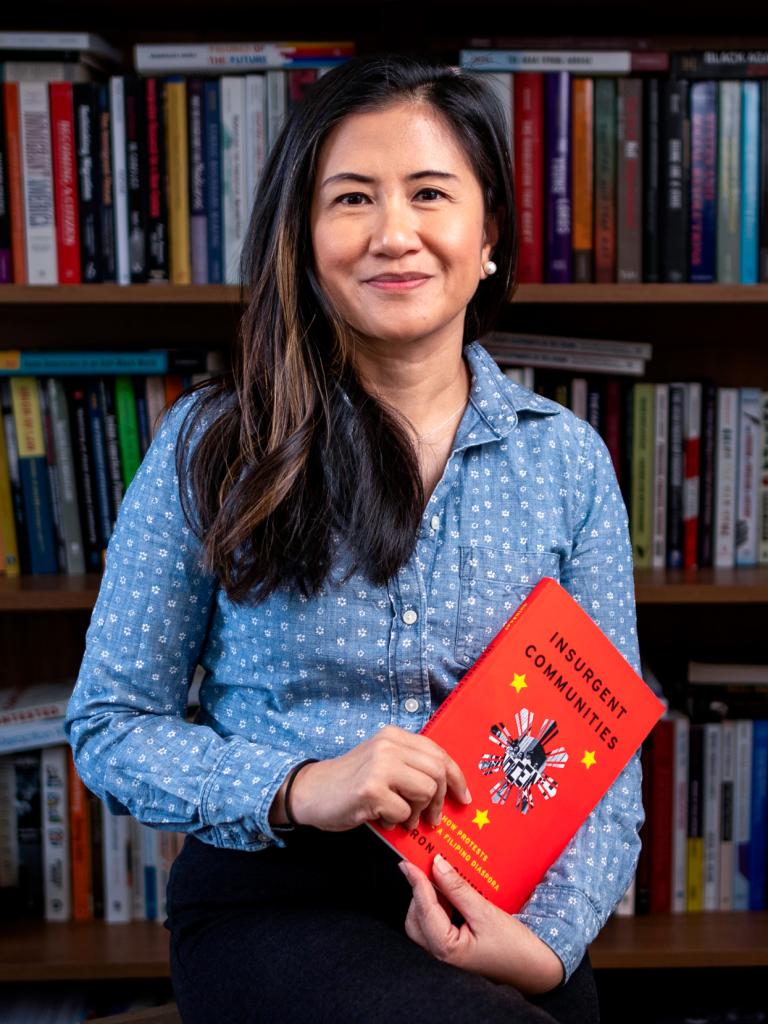 Sharon Madriaga Quinsaat is a scholar of social movements and migration and currently Associate Professor of Sociology at Grinnell College. She has conducted research using both qualitative and quantitative methods and published on a wide range of topics, including migrant conservatism, diaspora formation, transnational repression, news frames and discourses on immigration, women’s international nongovernment organizations, coalition-building in the World Trade Organization, and movement against free trade. Her work has been funded by the National Science Foundation, the National Endowment for the Humanities, the American Association of University Women, the American Philosophical Society, the Russell Sage Foundation, the Midwest Sociological Society, and the Association for Asian Studies and has been recognized by the American Sociological Association, the Association of Asian American Studies, and the International Studies Association through research paper awards. She has published her research in in edited volumes and peer-reviewed journals such as Journal of Ethnic and Migration Studies, Mobilization, Ethnic and Racial Studies, Mass Communication and Society, Sociology Compass, and Asian Survey.
Sharon Madriaga Quinsaat is a scholar of social movements and migration and currently Associate Professor of Sociology at Grinnell College. She has conducted research using both qualitative and quantitative methods and published on a wide range of topics, including migrant conservatism, diaspora formation, transnational repression, news frames and discourses on immigration, women’s international nongovernment organizations, coalition-building in the World Trade Organization, and movement against free trade. Her work has been funded by the National Science Foundation, the National Endowment for the Humanities, the American Association of University Women, the American Philosophical Society, the Russell Sage Foundation, the Midwest Sociological Society, and the Association for Asian Studies and has been recognized by the American Sociological Association, the Association of Asian American Studies, and the International Studies Association through research paper awards. She has published her research in in edited volumes and peer-reviewed journals such as Journal of Ethnic and Migration Studies, Mobilization, Ethnic and Racial Studies, Mass Communication and Society, Sociology Compass, and Asian Survey.Moderator
 Prof. (Dr. of Social Sciences) Miķelis Grīviņš is a tenured professor at RSU. For the past ten years, he has been researching various aspects of food systems, focusing on the interaction between food circulation and dietary habits, as well as food policy and alternative food sources.
Prof. (Dr. of Social Sciences) Miķelis Grīviņš is a tenured professor at RSU. For the past ten years, he has been researching various aspects of food systems, focusing on the interaction between food circulation and dietary habits, as well as food policy and alternative food sources.- Energy Poverty as a Research Subject. The Case of Jelgava. (7 November 2024)
In its narrowest sense, energy poverty refers to situations where households have access to necessary energy sources but cannot afford them, are forced to use them partially (e.g., partially and poorly heated spaces, insufficient lighting, etc.), or must pay disproportionately high costs to maintain an adequate level of comfort. However, energy poverty is rarely the result of an individual’s personal choice. It is caused by economic, political, and social conditions; therefore, in a broader sense, energy poverty should be discussed in the context of social inequality, public health, and urban policy.
Approximately 150 respondents participated in the HORIZON project WELLBASED pilot study in Jelgava. Over the course of a year and a half (2023–2024), the participants' health and housing indicators were monitored, supplemented by subjective well-being assessments and sharing of experiences regarding energy use habits. Seminar participants will be introduced to the initial results of the study, outlining the specific aspects of researching the phenomenon of energy poverty and its connection to broader social processes.Seminar leaders:
- Dina Bite, Associate Professor at Rīga Stradiņš University
- Mārtīte Ieviņa, head of Project Management Department at the Digital Centre of Jelgava Mārīte Ieviņa
- Lana Janmere, lecturer at the Latvia University of Life Sciences and Technologies
Moderator
 Prof. (Dr. of Social Sciences) Miķelis Grīviņš is a tenured professor at RSU. For the past ten years, he has been researching various aspects of food systems, focusing on the interaction between food circulation and dietary habits, as well as food policy and alternative food sources.
Prof. (Dr. of Social Sciences) Miķelis Grīviņš is a tenured professor at RSU. For the past ten years, he has been researching various aspects of food systems, focusing on the interaction between food circulation and dietary habits, as well as food policy and alternative food sources.- Diverse pathways to rural prosperity – from digitalisation to nature based solutions (2 Oct 2024)
Lecturer
Leanne Townsend is Senior Social Scientist and Group Lead of the Land and People group within the Social, Economic and Geographical Sciences department in the James Hutton Institute, Scotland. She has close to 15 years of experience researching rural digitalisation, with a particular focus on rural community and economic development. Currently Leanne is leading research on the role of digitalisation in supporting the resilience of crofts and small farms, as well as exploring the role of digital tools and methods in increasing participation and decision making in nature-based initiatives. She is particularly interested in the role of digital tools in participatory research and communication processes. Leanne will talk about her research on rural digitalisation, focusing on projects in which she explores the role of digital platforms for supporting small-scale and diversified farms, as well as other small businesses operating in rural regions. She will also introduce research exploring innovative methods for more inclusive nature-based solutions and initiatives.
Moderator
 Prof. (Dr. of Social Sciences) Miķelis Grīviņš is a tenured professor at RSU. For the past ten years, he has been researching various aspects of food systems, focusing on the interaction between food circulation and dietary habits, as well as food policy and alternative food sources.
Prof. (Dr. of Social Sciences) Miķelis Grīviņš is a tenured professor at RSU. For the past ten years, he has been researching various aspects of food systems, focusing on the interaction between food circulation and dietary habits, as well as food policy and alternative food sources.- The promises of regeneration: Tracing a theory of change among climate activists (30 May 2024)
At present, ‘regeneration’ receives renewed interest. Conservationists seek to render ‘regeneration’ as guiding principle for environmental management. Non-mainstream farmers propagate the benefits of ‘regenerative agriculture’. And climate activists bet on the ameliorative effects of ‘regenerative culture’ for their movements, and the world at large.
What kind of transformations do proponents of regeneration seek, and where? How do they try to intervene? What is their theory of change? And what implication does this have for Anthropocene anthropology?
In this talk, I begin addressing these questions based on ethnographic research among climate activists in Germany. I make three interlocking claims. I first demonstrate that activists invested in regeneration seek to create new forms of relating “in the shell of the old.” Second, I show that activists see desired changes to flow from rethinking temporal registers. This involves replacing trajectories of linear development with cyclicities; and, on another level, attempts to rediscover and repurpose techniques buried, as it were, by late capitalism. Third, I reveal how activists seek to combine inner and outer transformations in order to enable mutual flourishing.
I conclude by outlining how activists consider regeneration and the transformations it entails as a modality of striving for the ‘Good Anthropocene’ – a hopeful aspiration to sustain less bad futures enabled by decolonizing environmental relations.
Lecturer
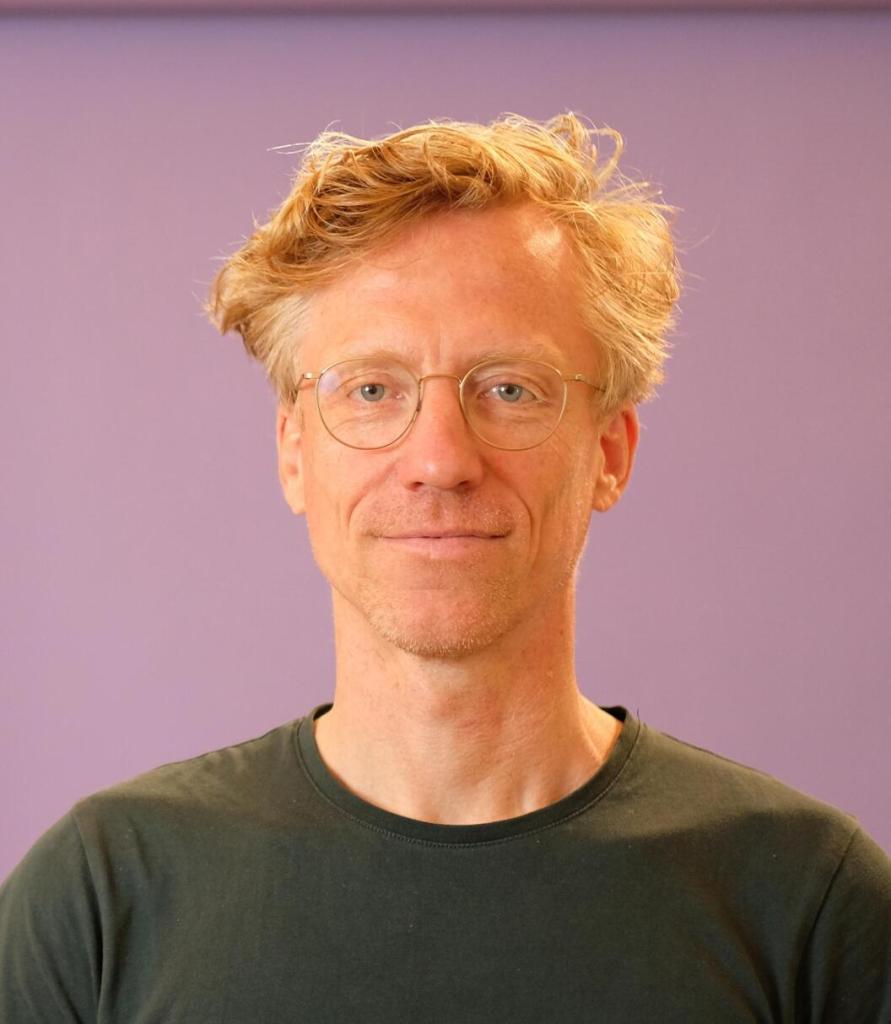 Arne Harms is a PostDoc Researcher at the Max Planck Institute for Social Anthropology, Halle/Saale. He is an environmental anthropologist working on slow disasters, everyday activism and ethics. His first monograph analyses coastal displacement in South Asia and will be published by University of Hawai’i Press in 2024. Currently, he is working on his second book, exploring intimate politics among climate activists based in Europe. On the side, he also studies the so-called Psychedelic Renaissance.
Arne Harms is a PostDoc Researcher at the Max Planck Institute for Social Anthropology, Halle/Saale. He is an environmental anthropologist working on slow disasters, everyday activism and ethics. His first monograph analyses coastal displacement in South Asia and will be published by University of Hawai’i Press in 2024. Currently, he is working on his second book, exploring intimate politics among climate activists based in Europe. On the side, he also studies the so-called Psychedelic Renaissance.Moderator
 Prof. (Dr. of Social Sciences) Miķelis Grīviņš is a tenured professor at RSU. For the past ten years, he has been researching various aspects of food systems, focusing on the interaction between food circulation and dietary habits, as well as food policy and alternative food sources.xx
Prof. (Dr. of Social Sciences) Miķelis Grīviņš is a tenured professor at RSU. For the past ten years, he has been researching various aspects of food systems, focusing on the interaction between food circulation and dietary habits, as well as food policy and alternative food sources.xx- The importance of Markets in Urban Environment (11 April 2024)
Plums Are Ugly, But Delicious: Bodily Experience, Nostalgia, and Expertise at the Liepāja Pētertirgus Market
Liepāja Pētertirgus market is a popular shopping destination for both locals and tourists. However, a recent study reveals that the market is not just a ‘tourist attraction’. People experience it in diverse ways – also bodily. At the market, experts - traders with a strong attachment to the place - meet visitors, who, through their bodily experiences and the traders' expertise, continuously create and evoke nostalgic memories. Over time, traders have become experts, best understanding their products. In the title of her master's thesis, Madara refers to a statement by a trader that plums may not look good, but they are delicious. This story explores the significance of the market in urban environment, at a time when alternative shopping venues such as supermarkets and online stores are getting more and more with every moment.
The Vidzeme market – A Place to Meet
Markets have always been not only places for transactions between buyers and sellers, but also where culture meets society, the city - its residents, where professionals meet users, traditions meet innovation, the fast meets the slow, the analogue meets the digital, history meets the present and the future, nature meets humans, the global meets the local, tourists meet local citizens, and institutions meet each other - that is the idea. As one of Riga’s most desirable yet weary markets, the Vidzeme Market, requires careful consideration of this timeless meeting phenomenon, along with social, economic, ecological, historical, and urban development aspects, this must be taken into consideration to ensure its sustainability. How can this be best achieved today?
Lecturers
 Madara Kandevica graduated this year from the RSU Social Anthropology study programme. Her interests include urban and medical anthropology, as well as kinship and care. She holds a bachelor’s and master’s degree in communications sciences and has studied cognitive semiotics in Denmark. With over fifteen years of experience in public relations, advertising, and marketing, she is also interested in aesthetics and design thinking. She would like to learn play chess.
Madara Kandevica graduated this year from the RSU Social Anthropology study programme. Her interests include urban and medical anthropology, as well as kinship and care. She holds a bachelor’s and master’s degree in communications sciences and has studied cognitive semiotics in Denmark. With over fifteen years of experience in public relations, advertising, and marketing, she is also interested in aesthetics and design thinking. She would like to learn play chess.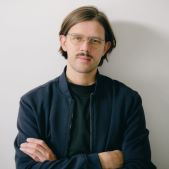 Mārtiņš Eņģelis is an urban researcher and leads strategic sector policy planning projects at the City Development Department of Riga City Council. Over the past fifteen years, he has worked in the fields of culture, tourism, and urban environment, currently regularly presents and leads workshops on these topics. He holds a bachelor's degree in new media art, a master's degree in international tourism management, and is currently pursuing another master's degree in spatial development planning. He has worked at the Icelandic Tourism Research Centre, the Danish Cultural Institute, Investment and Development Agency of Latvia, and the RIXC Centre for New Media Culture. He has hosted broadcasts and written about these subjects for Latvian Television and LSM.lv. He enjoys problem-solving, generating ideas, and everything that is original, clever, and larger than life. By 2031, he plans to become Latvia’s youngest president.
Mārtiņš Eņģelis is an urban researcher and leads strategic sector policy planning projects at the City Development Department of Riga City Council. Over the past fifteen years, he has worked in the fields of culture, tourism, and urban environment, currently regularly presents and leads workshops on these topics. He holds a bachelor's degree in new media art, a master's degree in international tourism management, and is currently pursuing another master's degree in spatial development planning. He has worked at the Icelandic Tourism Research Centre, the Danish Cultural Institute, Investment and Development Agency of Latvia, and the RIXC Centre for New Media Culture. He has hosted broadcasts and written about these subjects for Latvian Television and LSM.lv. He enjoys problem-solving, generating ideas, and everything that is original, clever, and larger than life. By 2031, he plans to become Latvia’s youngest president.Moderator
 Prof. (Dr. of Social Sciences) Miķelis Grīviņš is a tenured professor at RSU. For the past ten years, he has been researching various aspects of food systems, focusing on the interaction between food circulation and dietary habits, as well as food policy and alternative food sources.xx
Prof. (Dr. of Social Sciences) Miķelis Grīviņš is a tenured professor at RSU. For the past ten years, he has been researching various aspects of food systems, focusing on the interaction between food circulation and dietary habits, as well as food policy and alternative food sources.xx- The Role of Anthropology in the Study of International Business, Sustainability Ideology, and Practices (28 March 2024)
The lecture focused on the methodological aspects of the research process, examining Nordic companies in the Arabian Peninsula, which, surrounded by the desert and fuelled by oil, has opened the door to the sustainability ideology and committed itself to paving the way toward a green economy in the desert. Based on her recently published book Ilgtspējas meklējumi Arābijas tuksnesī (Searching for Sustainability in Arabian Deserts), the lecturer reflected on the efforts to access this world, exploring the synergies between seemingly incompatible realities - oil and sustainability, desert and fertility, the north and the east, energy and anthropology, culture and economics, water and drought, womanhood and respectability, hierarchy and inclusion, the traditional and the hypermodern, mutual trust and institutionalism.
Lecturer
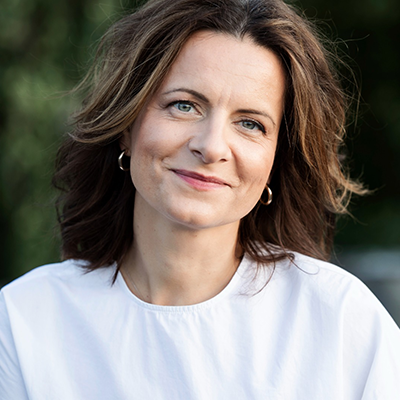 Agnese Cimdiņa holds PhD and master’s degree in social anthropology from the University of Bergen in Norway, with expertise in business and development anthropology, and intercultural understanding, as well as quality research methods.
Agnese Cimdiņa holds PhD and master’s degree in social anthropology from the University of Bergen in Norway, with expertise in business and development anthropology, and intercultural understanding, as well as quality research methods. Moderator
 Prof. (Dr. of Social Sciences) Miķelis Grīviņš is a tenured professor at RSU. For the past ten years, he has been researching various aspects of food systems, focusing on the interaction between food circulation and dietary habits, as well as food policy and alternative food sources.
Prof. (Dr. of Social Sciences) Miķelis Grīviņš is a tenured professor at RSU. For the past ten years, he has been researching various aspects of food systems, focusing on the interaction between food circulation and dietary habits, as well as food policy and alternative food sources.- ‘Life by the Sea’ Through a Century: The Cultural and Culinary Heritage of Coastal Fishing in Times of Ecological Change (1 February 2024)
In his 1938 book Dzīve pie jūras (Life by the Sea), Vilis Veldre will describe the pace of life and practices of coastal fishermen. Guntra Aistara will present a new study funded by the Latvian foundation conducted in collaboration with RSU social anthropology students, the Latvian Oral History Project, and the interdisciplinary Art Centre SERDE. This research explores how life has changed under different regimes, fishing systems, and the impact of climate change and how we can understand, preserve, and pass on ancestral practices, knowledge, and the ability to coexist with the diverse sea. As part of the project, several ethnographic expeditions are collecting stories, memories, and knowledge of coastal fishermen about fishing history and practices, socio-ecological relationships between people, land, and the sea, climate change observations and the culinary heritage of fish dishes.
Lecturer
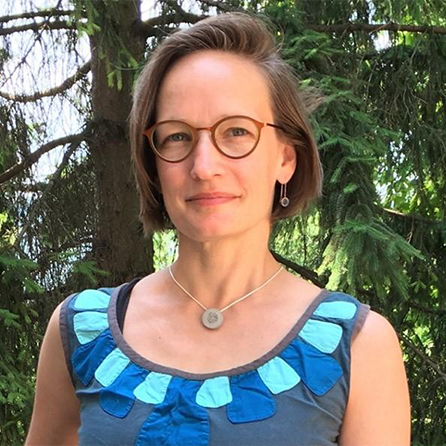
Guntra Aistara is an associated professor at the Department of Environmental Science and Policy of the Central European University (CEU). She is an environmental anthropologist and holds PhD from the University of Michigan. In 2018, she published a book ‘Organic Sovereignties’ on organic agriculture knowledge, practices and challenges of Latvian and Costa Rica farmers in the era of globalisation.
Moderator
 Prof. (Dr. of Social Sciences) Miķelis Grīviņš is a tenured professor at RSU. For the past ten years, he has been researching various aspects of food systems, focusing on the interaction between food circulation and dietary habits, as well as food policy and alternative food sources.
Prof. (Dr. of Social Sciences) Miķelis Grīviņš is a tenured professor at RSU. For the past ten years, he has been researching various aspects of food systems, focusing on the interaction between food circulation and dietary habits, as well as food policy and alternative food sources.- The Potential of High-Quality Food Products in Green Public Procurement (11 January 2024)
The study examined the potential of high-quality food products in Green Public Procurement, providing insights into the organisation of food and catering services in Latvia. It emphasized the provision of high-quality products (HQP) within Green Public Procurement (GPP).
- Analysis of regulatory framework for GPP procedures in Latvia.
- Compilation of performance indicators on food and catering service procurements in the state and municipal institutions from 2018 to 2021.
- Estimation of HQP volume and assessment of HQP production potential.
- Identification of problems for HQP producers' participation in GPP.
- Development of recommendations for ensuring HQP provision and volume increase in GPP across Latvia's regions.
Lecturer
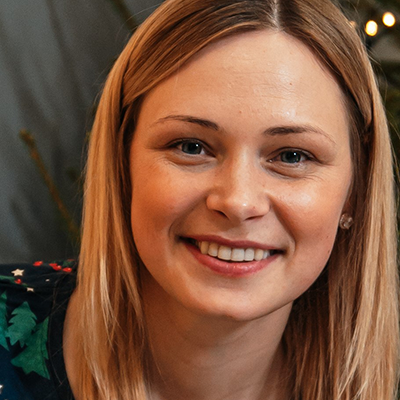 Lāsma Aļeksējeva is a researcher in agricultural economics at Bioeconomy Department of the Institute of Agricultural Resources and Economics (AREI). Lāsma Aļeksējeva is a PhD student at the Faculty of Economic and Social Development of the Latvian University of Life Sciences and Technologies and has been involved in the development of GPP within the study on Potential of High-Quality Food Products.
Lāsma Aļeksējeva is a researcher in agricultural economics at Bioeconomy Department of the Institute of Agricultural Resources and Economics (AREI). Lāsma Aļeksējeva is a PhD student at the Faculty of Economic and Social Development of the Latvian University of Life Sciences and Technologies and has been involved in the development of GPP within the study on Potential of High-Quality Food Products. - Systems Thinking and Its Impact on Research (16 November 2023)
The challenges that society is forced to address are complex - they consist of various dimensions of influence and interests that are difficult to align. Challenges have always been complex. At the same time, with globalisation, the climate crisis, and the acceleration of changes, the complexity of things has become more noticeable, receiving additional academic and non-academic attention. This is mainly because the extent to which our proposed solutions can handle this complexity will determine whether these solutions will create new problems or else - would help address also other topical issues.
Food industry is an area where the complexity is very clearly reflected. In the food cycle, it is necessary to balance environment-friendly production methods with the need to ensure that food is available in sufficient quantities, affordable for everyone, and that also producers receive fair compensation for their work. At the same time, consumers should be able to choose the best food for themselves, with selected products being both healthy and sustainable. Studies show that there is no single best answer to overcome these dilemmas. Solutions are local and will differ in each situation.
The seminar explained the theoretical aspects of complexity using practical examples. It demonstrated how to incorporate complexity into research, as well as discussed how complexity could influence the choice of research methods and the presentation of results.
Lecturer
 Prof. (Dr. of Social Sciences) Miķelis Grīviņš is a tenured professor at RSU. For the past ten years, he has been researching various aspects of food systems, focusing on the interaction between food circulation and dietary habits, as well as food policy and alternative food sources.
Prof. (Dr. of Social Sciences) Miķelis Grīviņš is a tenured professor at RSU. For the past ten years, he has been researching various aspects of food systems, focusing on the interaction between food circulation and dietary habits, as well as food policy and alternative food sources.

(R)E-TIES: Managing mobility and human relations in digitally saturated social worlds
Location
Tā kā Rīgas Stradiņa universitāte ir publiska iestāde, pasākuma laikā jūs varat tikt fotografēts un/ vai filmēts. Fotogrāfijas un video var tikt publicēts universitātes mājaslapā, sociālajos medijos u. tml. Vairāk par savām tiesībām un iespēju iebilst pret šādu datu apstrādi varat uzzināt RSU Privātuma politikā. Ja iebilstat pret personas datu apstrādi, lūdzam par to informēt, rakstot uz rsu@rsu.lv.
As Rīga Stradiņš University (RSU) is a public institution you could be photographed and/or filmed during the event. Your personal data might be used to further the interests of RSU, e.g. for marketing or communication activities (incl. social media coverage). Read more about your rights see the RSU Privacy Policy. Should you have any objections to your personal data being processed please inform us via e-mail at rsu@rsu.lv.
